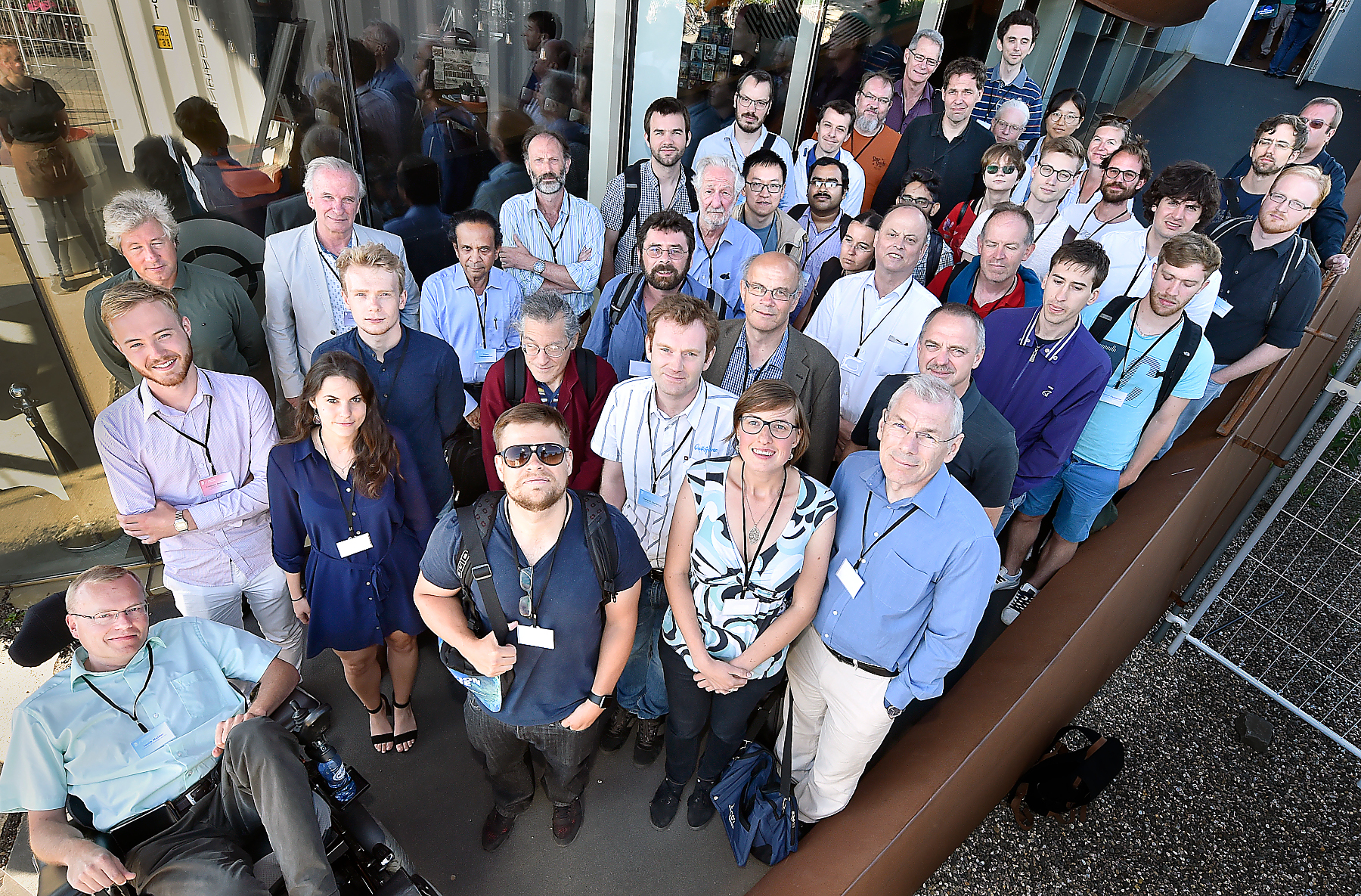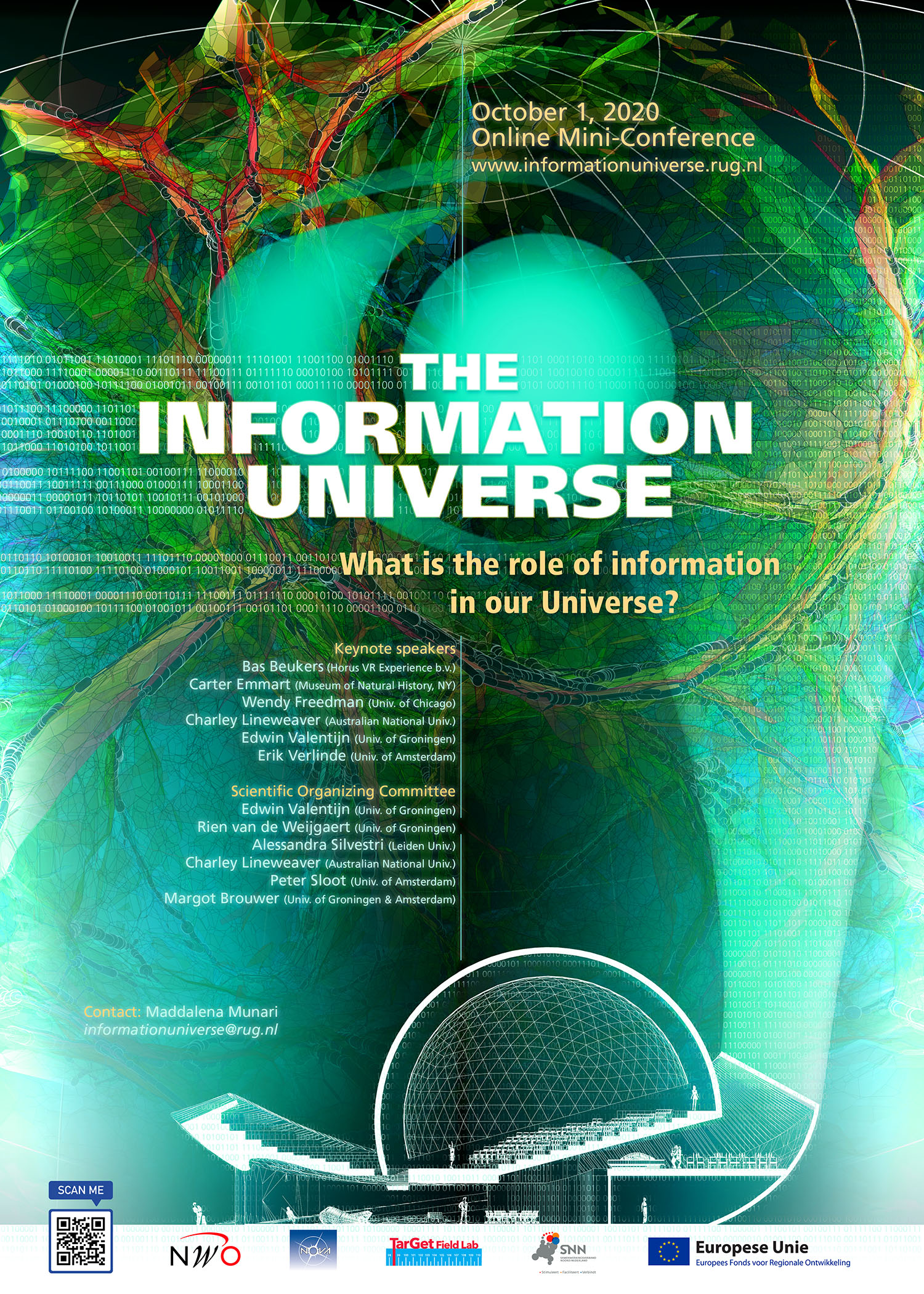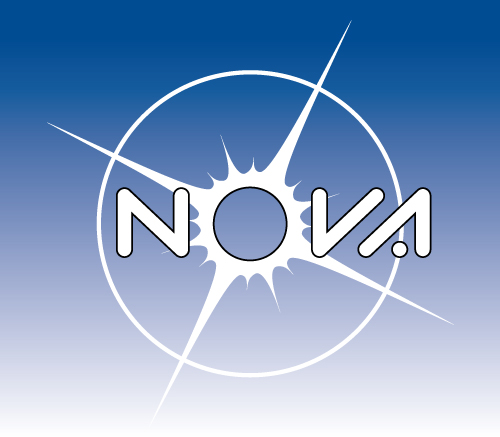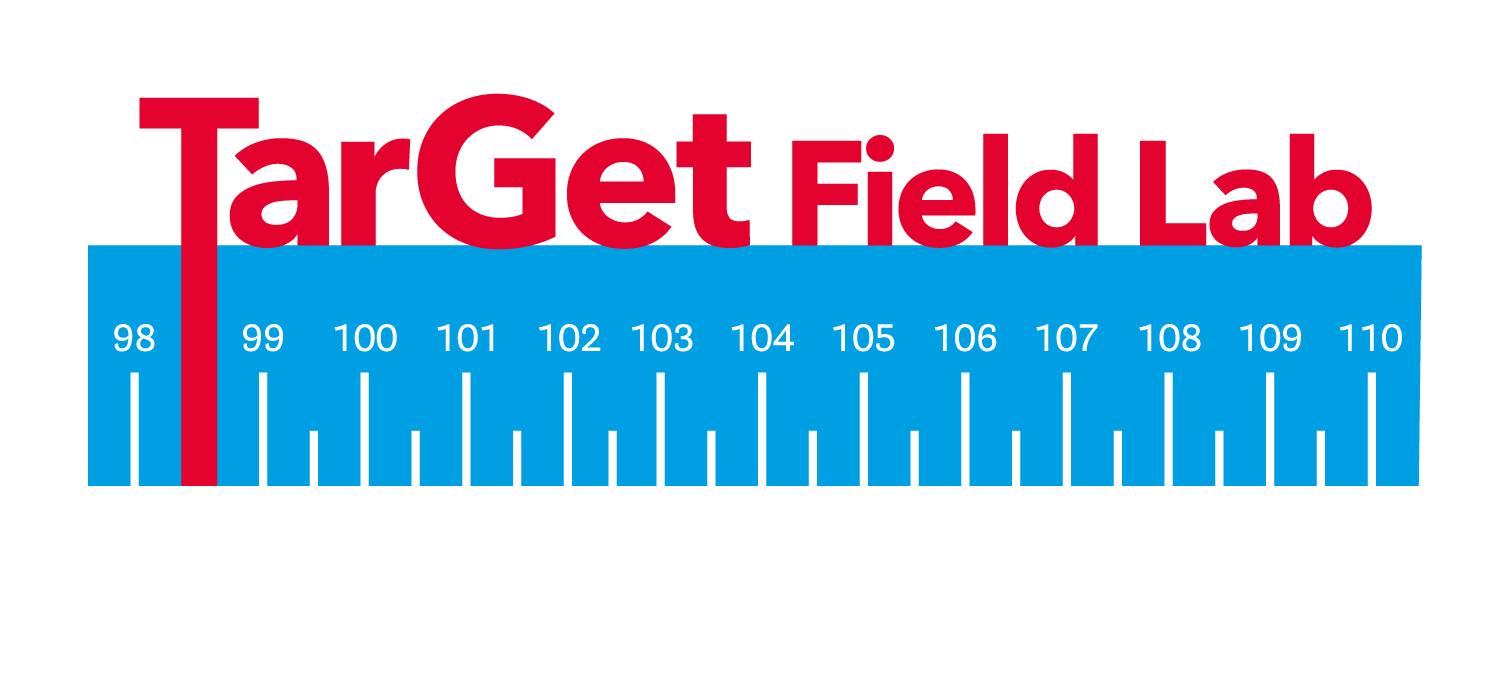Online Mini-Conference 1 October 2020
Please register here and we will see you then!
Sadly the current COVID-19 pandemic forces us to postpone an in-person IU conference to 2021 but this year, on 1 October 2020, we will organize a short, but intensive, ~3-hour mini-conference at around 2-6 p.m. CET, hosting a selection of our original keynote speakers:
-Charley Lineweaver, Australian National University's Planetary Science Institute in Canberra, Australia
-Wendy Freedman, University of Chicago, the United States
-Erik Verlinde,University of Amsterdam, the Netherlands
-Bas Beukers, Target Field Lab - Horus VR Experience BV
-Carter Emmart, American Museum of Natural History in New York, will give an OpenSpace planetarium show
-Edwin Valentijn, 'Powers of Two'
During this event we will also present:
The very first popular science book on the Information Universe: "Powers of Two — The Information Universe" (Springer-Nature 2020) with contributions of many Information Universe conference speakers — highlighted by a foreword from Robbert Dijkgraaf.
The mini-conference fee will be €45, which includes:
- Access to all presentations and Q&A sessions
- A conference kit with the new Target Fieldlab Brochure
- A physical hardcover copy of the "Powers of Two" book, sent to your home address without additional cost (retail price: ~€45 excl. shipping).
Please register here and we will see you then!
Follow Us
Dear all, we are glad to announce that all videos from the IU2018 are available. You can watch all presentations through the IU programme, or our YouTube channel. Enjoy and share!
Take a look at this full dome picture of the KiDS dark matter maps taken from the presentation by Prof. Edwin Valentijn. We hope to see you at our online IU conference 2020.
The Information Universe Series
The key topic of the IU conference series is: “What is the role of information in the Universe and its description?”. In an epoch where scientists need to handle Big Data and simulations, find highly organized systems in nature and grapple with the role of information in physics and other sciences, this appears to be one of the more fundamental questions that needs to be answered in order to understand the world around us. The Information Universe conference intends to unite various approaches, addressing the fundamental role of information both in nature (in vivo) and in data analysis, theory and computer modelling (in vitro).
The conference will approach the key role of information from the point of view of several disciplines: e.g. cosmology, physics, mathematics, life sciences, computer science (including quantum computing) and neuroscience. The deeper role of information is formulated in different ways by these various disciplines, leading to a multitude of fundamental questions such as:
- Is there a deeper physical description of space-time and gravity based on information?
- The Big Data Universe and our Universe: are our numerical simulations and Big Data repositories (in vitro) different from real natural system (in vivo)?
- Will quantum systems dominate the future of computing?
- What is the role of information in highly organized complex life systems and genetics?
- What will be the role of machine learning in the future of science?
- How will big datasets from new experiments, such as Euclid, help us in understanding fundamental cosmological problems: dark matter, dark energy, inflation and structure formation?
- Is the universe one big information processing machine, a hologram, one of many?
In regular conditions, the conference is held in the 260 seats planetarium theatre in Groningen, which provides an inspiring immersive 3D full dome display, e.g. numerical simulations of the formation of our Universe, and anything else our presenters wish to bring in. The digital planetarium setting will be used to visualize the theme with modern media.








